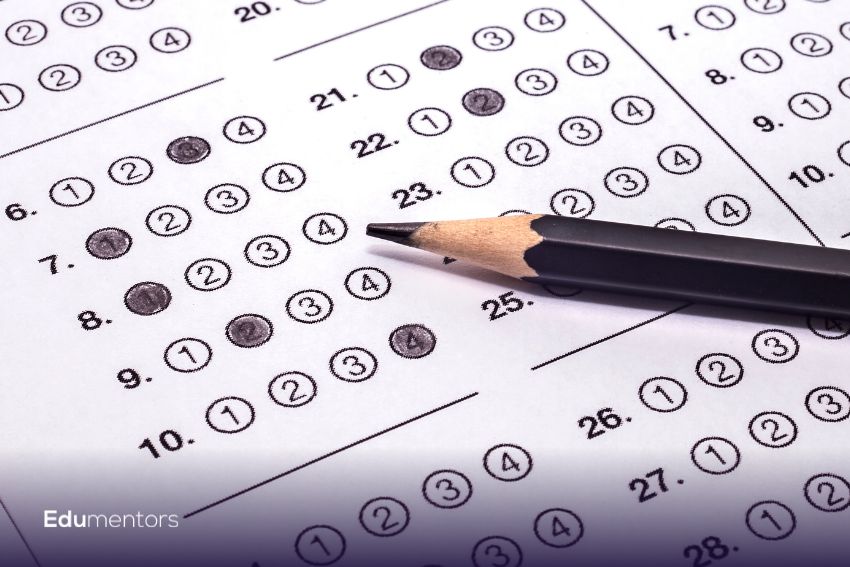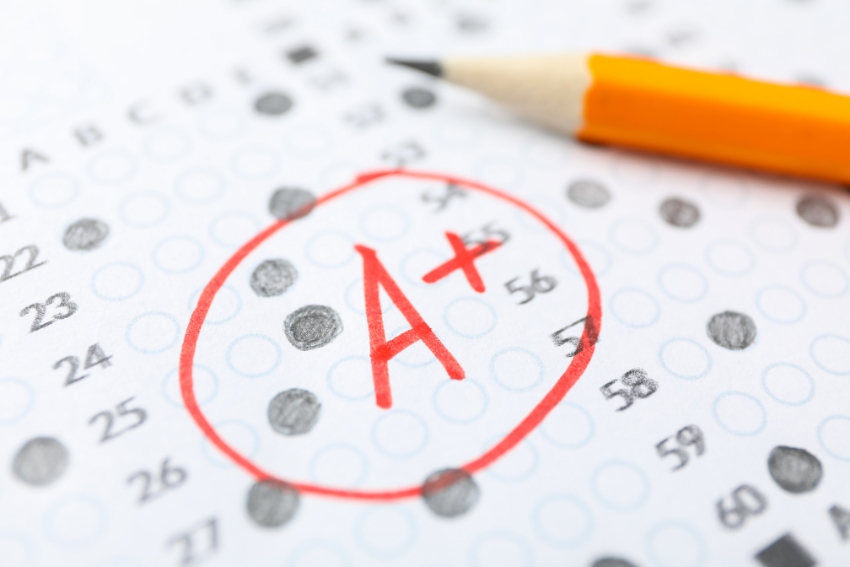Mock exams give you a first look at how well you’re handling your subjects before the real exams arrive. They’re designed to guide you, not judge you. Still, it’s normal to feel uneasy while waiting for the results, especially if you’re not sure how things went.
Try to keep in mind that mock exams are part of the learning process. They highlight what’s going well and what needs more attention. They are not a prediction of your final grades and they certainly don’t define your potential.
In this guide, we’ll walk through what happens once mock exams are over. You’ll learn how schools share results, how to make sense of your feedback, how to deal with any disappointment and how to use your results to shape stronger revision habits.
What Happens Right After Mock Exams?
Once the mock exams are finished, teachers get to work behind the scenes. They use the exam board mark schemes, or very similar ones, to mark each paper as if it were a real exam. This process can take a little time, but it’s what turns your answers into useful feedback you can actually learn from.
Mock Exams – Marking and Feedback
In most UK schools, mock papers are marked by your subject teachers using the official exam board mark schemes or adapted versions. In many departments, teachers also compare a sample of each other’s marking to keep things as fair and consistent as possible across different classes. When marking is complete, you’ll usually get your script back with ticks, crosses, comments and a total mark. Schools often add a grade based on their own internal boundaries and some also provide a simple breakdown showing how you did on different questions or topics. The aim is to show you what went well and where marks were lost, so you know what to work on next.
How Schools Share Mock Results
UK schools share mock results in a few different ways. You might get a printed report to take home, or your marks might appear on an online portal used by students and parents. Some schools also hold tutor meetings or parents’ evenings after mocks to talk through results and next steps. In lessons, teachers will usually go over common mistakes and show examples of stronger answers, so you can see what higher-mark responses look like. All of this is designed to make your mock exams a starting point for improvement, rather than just a set of numbers on a page.

How to Understand Your Mock Exam Results
Understanding your mock results properly can make a huge difference to how you prepare for the real exams. It’s not just about the grade on the page – It’s about what you can do next.
What Your Mock Exams’ Grades Actually Mean
Mock results often come with a mark, a percentage and sometimes a grade. Your mark is simply the number of points you earned. The percentage shows how that mark compares to the total available. The grade is based on the grade boundaries your school has chosen to use for the mock papers.
It’s important to remember that mock grade boundaries rarely match the real GCSE ones exactly. Schools set their own boundaries because they may use older papers, different papers, or a mix of questions. This means your mock grade is a guide, not an exact prediction of what you would get in the real exam. What matters most is the pattern of your performance, not the boundary your mock used.
Spotting Strengths and Weaknesses
To get the most out of your mocks, look closely at which questions went well and which ones didn’t. Strong areas usually show up as consistent marks across similar types of questions. Weaker areas might be topics you forgot, questions you misread, or tasks where you ran out of time.
Try to work out whether the problem was knowledge, timing, or exam technique:
- Knowledge gaps show up when you don’t recognise content or can’t remember key facts.
- Timing issues appear when you leave questions unfinished or rush the last parts.
- Exam technique problems happen when you understand the topic but lose marks for structure, detail, or not answering the question directly.
Once you know which of these affected your score, you’ll be in a much better position to improve before the real exams.
Turning Your Mock Results Into a Clear Plan
Mock results are most useful when you turn them into simple steps you can follow. A clear plan helps you improve without feeling overwhelmed and it stops you from repeating the same mistakes in the real exam.
Step 1 – Go Through Your Paper Properly
Start by reading through your mock paper slowly. Look at every comment your teacher has written. These notes show exactly where marks were lost and why. Pay attention to any patterns you notice, such as repeated spelling issues, missing steps in maths, or not giving enough detail in longer answers. These patterns are clues that will help guide your next steps.
Step 2 – List the Topics You Struggled With
Once you’ve reviewed the paper, make a simple list of the areas you found difficult. This could be certain topics, types of questions, or skills you didn’t use well in the exam. Separating your list into content gaps and technique gaps makes it even clearer. Content gaps mean you need to revisit the material itself. Technique gaps mean you understand the topic, but the way you answered the question needs work.
Step 3 – Change Your Revision Strategy
If your old revision methods didn’t help as much as you expected, now is the time to try something new. Use techniques that help you remember and apply information, like active recall, past papers and short, timed questions. A small change in how you revise can have a big effect on your next set of marks.
Adjusting Your Revision After Mock Exams
Your mock results show you where to focus next. With a few smart changes, your revision can become much better and targeted. This helps you avoid repeating the same mistakes in the real exams.
Fixing Knowledge Gaps
If your mock results showed gaps in your understanding, build those topics into your revision straight away. Go back through your class notes, watch short explanation videos on BBC Bitesize or use a revision guide to refresh what you’ve forgotten. Be selective and focus on the areas that appeared most often in your mock mistakes. Add these topics to your revision sessions over the next few weeks so you keep revisiting them. Every time you return to a weak topic, you strengthen your memory and feel more ready for the real exam.
Also, poor exam technique can cost you marks even when you understand the topic. Start by practising with a timer so you get used to working at the right pace. Try planning your longer answers before you write them, even if it’s just a quick outline. This helps you stay focused and avoid drifting off the main point. It also helps to look closely at the wording of questions. Many students lose marks because they don’t fully understand what the question is asking for. Spend time learning the common command words in your subject so you know exactly how to shape your answers.

When Mock Results Affect Your Future Plans
Mock exams can influence what happens next, especially when it comes to predicted grades or choosing future courses, but they are only a small part of the bigger picture. Teachers may use your mock results to help set predicted grades, yet they also look at classwork, homework, test scores and how much progress you’ve made over time. Even if your mock grade wasn’t what you wanted, there is still plenty of time to improve and your effort after mocks can strongly shape how teachers view your potential.
Your results can also help you think about which subjects feel right for you moving forward. Solid results might confirm a subject choice, while weaker performance doesn’t mean you should drop it, but it can be a sign to talk things through with a teacher. If you’re unsure, asking for guidance can help you decide whether to continue with a subject or explore another route that suits you better.
Conclusion
Mock exams are there to guide you. They show what’s going well and what still needs attention, so you can focus your energy where it actually counts. If you use your results to tweak how you revise, fix a few weak spots, and build better habits, you can make real progress before the final exams.
You also don’t have to do all of this alone. If certain subjects continue to feel confusing, online tutoring can be a straightforward way to get back on track. A good tutor can clearly explain difficult topics, help you improve exam technique and turn your mock feedback into a clear plan. With the right support, your mocks become a stepping stone towards stronger grades, not something to worry about.
You Might Find This Interesting
Mock Exam Preparation – Your Complete Guide
Mock Exams Explained: Why They’re More Important Than You Think








